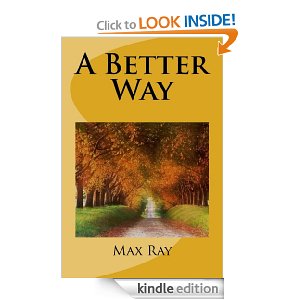Racism II: The Three Classes of Racism
November 30, 2014 Leave a comment
In my last post, I mentioned some extremely racist comments and attitudes held by influential leaders in the churches of Christ in the 20th century. I would classify these actions, writings and attitudes as falling in a category of organized, institutional, or perhaps more directly, intentional racism. For more information on the broader scope of the churches of Christ and social justice, Bobby Valentine wrote an excellent paper on the subject. It can be accessed at http://stonedcampbelldisciple.com/2010/03/15/social-concerns-in-churches-of-christ-trends-since-the-king-years-1950-2000/
In that article, he quotes from other church of Christ luminaries like Texas preacher, J.D. Tant, who went on a rant about the indecent drive toward racial equality in Kansas, and noted that such things would never be tolerated in ““heathen” Texas.” In the early years of the 20th century, the president of Abilene Christian College reportedly accepted money from the Ku Klux Klan during a chapel meeting, apparently giving some legitimacy to that notoriously racist organization.
Valentine went on to show that in the mainstream churches, there was 1) denial of any racism at all, 2) opposition to members becoming active in civil rights marches, 3) even an appeal to the Bible for maintaining the status quo, and 4) a condemnation of Martin Luther King and the Civil Rights Movement for embracing nothing more than a social gospel and denying the true Gospel.
Black preachers like the legendary Marshall Keeble knew their place in southern white society, played the game, and were treated paternalistically by patronizing white preachers. Other black preachers were more vocal about the shameful inequities heaped on the black minority. Predictably, they fell from grace among whites.
I’ll not repeat Valentine’s rather scholarly paper. It’s an interesting read.
In continuing the theme of racism, I think it only fair to consider the responsibility of those who are affected by it. It is easy to define racism as an offense by a member or members of one race against one or more members of another race. If there is organized racism, the unfortunate likelihood is that any attempt to address it will be met with scorn and possibly retribution.
But I believe that there are other classes of racism, which are more unintentional, possibly linked to what amounts to subliminal suggestion planted in the subconscious of the incidental racist. Here is where the argument that something “happened in another time” comes into play. I believe that there are those who were exposed to de facto racism as children who maintain that de facto racism as adults without even realizing it. There may be no overt racist actions, but attitudes are hard to dismiss. Notions like blacks just not being as intelligent as whites linger on. They shake their heads and point at low achievement and social problems in inner cities and confidently reinforce their prejudice. They fail to see that lack of investment and opportunity perpetuate a cycle of poverty and social ills that happen to disproportionately affect the African American populations who are effectively trapped in those places. The cycle is vicious, and not easily broken.
The incidental racist can overcome this problem by recognizing it and consciously rooting it out and exposing it for the racism that it is. There is hope for the incidental racist. I believe I was probably in this category once, having grown up in the south and accepting the broadly painted racial stereotypes and prejudices of a society in racial turmoil and on the cusp of change. I must constantly work to make sure I am not falling back into those old ways.
The third class of racists I would propose includes those whose hearts are good and pure, who would never purposely harm anyone of any race at any time or in any place. These are good people who for whatever reason make a comment that is misconstrued by someone who has already been hurt and lives in a constant state of alert for more hurtful actions by those who perpetrate and perpetuate racism. I call these people accidental racists. A slip of tongue may be all that it takes to set a chain reaction in motion that causes hard feelings and division among people who were once close.
In situations of incidental or accidental racism, the offended party must take action to rectify the situation. If I have made some offensive remark to my black friend or brother in the faith, I may not know what I have done to cause offense. The most direct Biblical teaching regarding this type of situation came from Jesus himself in Matthew 18:
“15 If your brother sins against you, go and tell him his fault, between you and him alone. If he listens to you, you have gained your brother. 16 But if he does not listen, take one or two others along with you, that every charge may be established by the evidence of two or three witnesses. 17 If he refuses to listen to them, tell it to the church. And if he refuses to listen even to the church, let him be to you as a Gentile and a tax collector.”
If a brother or sister is offended by a racist remark, it is imperative that this be addressed in order to prevent it from happening again. An accidental racist will make amends immediately with the single visit. After all, he may have had no idea that the offense had occurred. An incidental racist may need more convincing, but once it becomes apparent that he is in the wrong, if his heart is indeed good, he will change. An intentional racist, on the other hand, will likely be unrepentant and may even become more offensive when provoked.
I’ve been thinking about this because I have recently heard of a case in which the accidental racist scenario was in play. I hope that the offended party will follow Jesus’ teaching and talk to the one who apparently offended, albeit unintentionally. To leave a conflict unresolved is like leaving a cancer untreated. It darkens the heart and builds walls that are not easily broken down.
The sad heritage of racism, especially in the South, and unfortunately ingrained in some churches needs to be exposed and expelled. There is no advantage to be gained from oppressing another race. Indeed, the most beautiful gardens in nature are where there is appreciable diversity. Among races, we are fundamentally and biologically of identifiable but negligible difference. But inside, the soul of a white man carries no more weight than that of his African American brother. In fact, they are equal. And they are both of inestimable worth.





Recent Comments